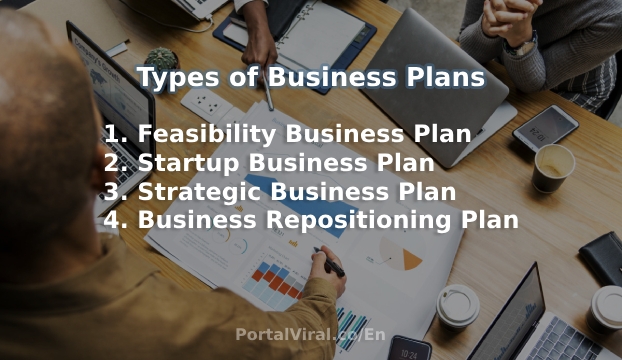Business Plan Definition – In a time when over 20% of new small businesses don’t make it past their first year, creating a carefully planned and clear business strategy is absolutely essential for ensuring that your business thrives in the long run.
Business plans are necessary tools for entrepreneurs, business owners, those acquiring businesses, and even students in business school. However, what precisely is a business plan?
In this article, we will clarify what a business plan is, outline the reasons for needing one, distinguish between various types of business plans, and outline what you should incorporate in your own plan.
What Is Definition Of Business Plan?
Definition of business plan is a comprehensive document that outlines a company’s objectives and the strategies it intends to use to achieve those goals. It provides a detailed roadmap for the organization, covering aspects like marketing, finances, and operations. Both startups and established companies rely on business plans.
This document is essential for communicating with both internal and external audiences. For example, it is used to attract investment when a company is still in its early stages and doesn’t have a proven track record. It can also help in securing loans from financial institutions.
Moreover, a business plan serves as a tool to align a company’s leadership team, ensuring everyone is on the same page regarding strategic priorities and objectives.
While they are particularly beneficial for new ventures, it’s advisable for all companies to have a business plan. Ideally, the plan should be regularly reviewed and updated to reflect achieved goals or changes in direction. In some cases, an established company might create a new business plan when they decide to pivot or change their strategic direction.
The business plan is an unquestionably vital element in launching any company. It plays a crucial role in obtaining funding, describing your business model, presenting your financial forecasts, and transforming a fledgling business concept into a tangible reality.
Types of Business Plans

There isn’t a universal business plan that suits all businesses because there are various types of businesses in today’s market.
Whether it’s a startup with a single founder or a well-established brand striving to maintain competitiveness, each type of business requires a customized business plan that addresses its specific requirements. Here are some of the most common types of business plans.
1. Feasibility Business Plan
This type of business plan is focused on a crucial aspect of the business, which is the product or service it offers. It can be either a part of a startup’s overall business plan or a separate plan for an established organization. This comprehensive plan typically includes:
- A detailed description of the product or service.
- Analysis of the market for the product.
- Requirements for technology and production.
- Sources of financing.
- Operational details related to production.
According to research by CBInsights, 35% of startups fail because they don’t meet a market need, and another 10% fail because their products were introduced at the wrong time.
In some cases, businesses conduct feasibility studies to explore various ideas and narrow down their product plans to the most promising option. These studies are conducted before creating the feasibility business plan, which focuses specifically on that chosen product or service.
2. Startup Business Plan
A startup business plan is one of the most common types of business plans, designed for new business ideas. It serves as the blueprint for the future success of the business.
The primary challenge with a startup business plan is that it starts from scratch, unlike established businesses that can reference existing data. Startup plans often include references to industry data and provide detailed explanations of unique business strategies and go-to-market plans.
The contents of a startup business plan can vary significantly based on the top-priority goals. For instance, if a startup is seeking funding, the plan may focus more on financial projections rather than aspects like marketing or company culture.
3. Strategic Business Plan
Strategic business plans are oriented towards the long-term goals of your business, typically spanning the first three to five years of its operation. This differs from the standard startup business plan, which usually concentrates on the initial one to three years. The primary audience for a strategic plan is usually internal stakeholders within the company.
These business plans often encompass:
- Relevant data and in-depth analysis.
- Evaluations of the company’s available resources.
- Vision and mission statements that define the business’s purpose.
- Detailed action plans that outline the steps to achieve strategic objectives.
It’s important to note that while many businesses develop a strategic plan before launching, some entrepreneurs dive right in without one. In such cases, a strategic business plan can be valuable by outlining how the business intends to attain specific goals. This type of planning also enables a business to prepare for future challenges and uncertainties.
4. Business Repositioning Plan
When a business aims to steer clear of being acquired, change its brand’s image, or explore new directions, CEOs or owners will create a business repositioning plan.
This plan typically involves:
- Recognizing the current state of the company.
- Defining a vision for where the company wants to go in the future.
- Explaining the reasons behind the need for the business to change its position.
- Describing a method for how the company intends to make these adjustments.
Companies often embark on business repositioning either proactively or reactively. This can be in response to shifts in market trends and evolving customer preferences.
For instance, the shoe brand AllBirds is planning to refocus its brand on its core customer base and adjust its strategy for reaching customers. These decisions come in response to lackluster sales following product changes and other strategic missteps.
Also Read: What Is Marketing Plan?
How to Write a Business Plan
A carefully thought-out and well-crafted business plan can provide significant benefits to a company. While there are templates available for creating a business plan, it’s essential to avoid producing a generic or one-size-fits-all document.
Your plan should offer an overview and, if possible, provide insights into the industry your business will operate within. Additionally, it should clarify how your business intends to stand out from competitors.
Here’s a basic structure to consider when creating your business plan:
- Executive Summary: A concise overview of the entire plan, highlighting key points and objectives.
- Company Description: Detailed information about your company, its history, mission, vision, and legal structure.
- Market Analysis: In-depth research on your target market, industry trends, and competitor analysis.
- Product or Service Description: Explanation of what your business offers and its unique features or benefits.
- Marketing Strategy: Your approach to promoting and selling your products or services, including market positioning and pricing strategy.
- Financial Projections: Detailed financial forecasts, including income statements, balance sheets, cash flow projections, and break-even analysis.
- Appendix: Supplementary documents and data that support the main sections of the plan.
Traditional business plans typically include some combination of these sections, and you may also incorporate funding requests if needed.
However, it’s crucial to tailor your plan to your specific business plan definition and its requirements. The main body of your plan should ideally span 15-25 pages, maintaining a balance between comprehensiveness and conciseness.




